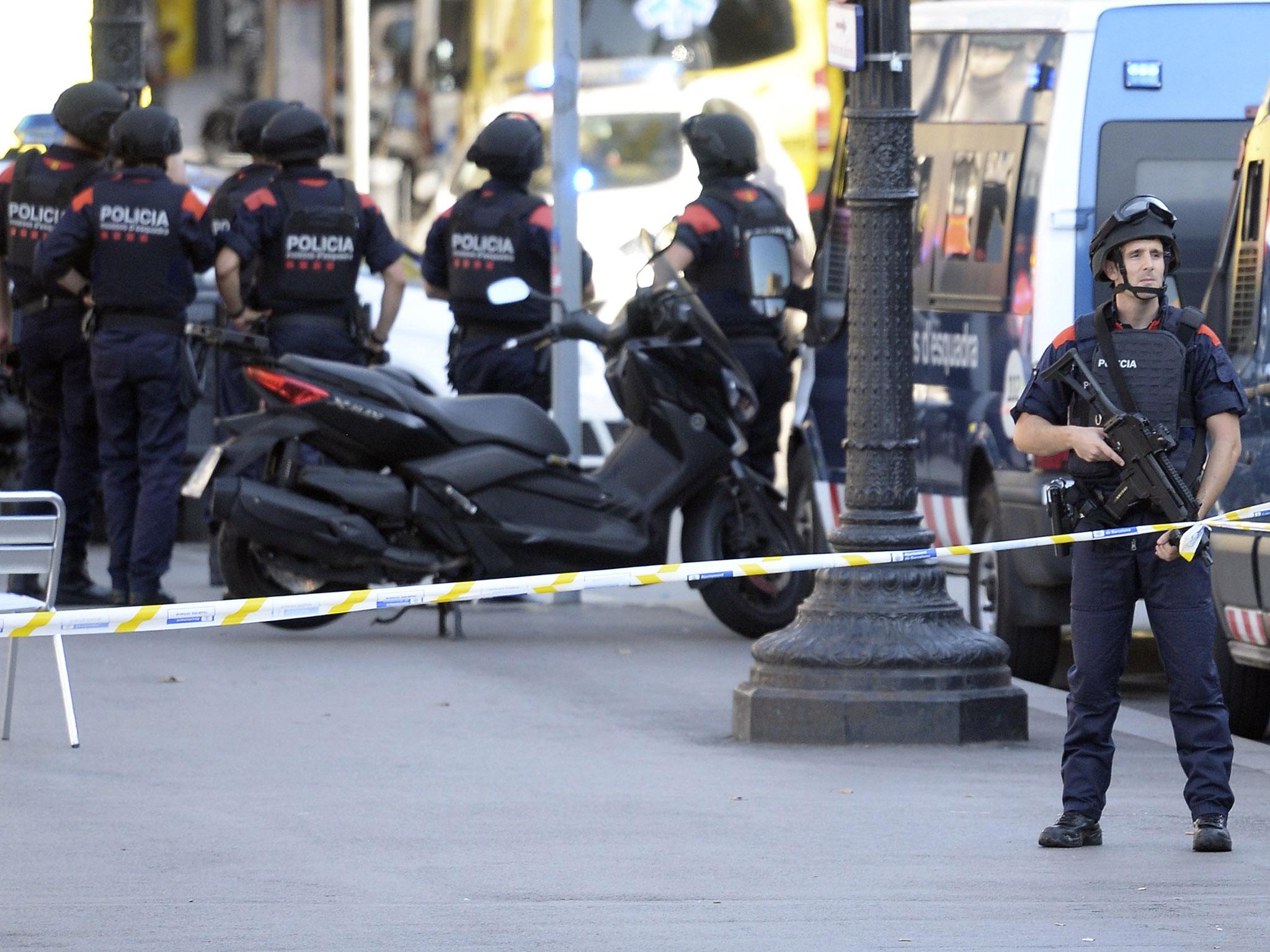Barcelona attack: How the Iraq war is linked to Spain's outbreak of Islamist terror
Analysis: Security officials warned for a while that Spain, too, would be an arena for global jihad

The secrecy and subterfuge behind the Iraq war links Spain to Islamist terror. Jose Maria Aznar, the Prime Minister at the time, and his government misled the country by claiming that a devastating massacre in Madrid, a direct retaliation for the invasion, was the work of Basque separatists rather than al-Qaeda.
Mr Aznar had backed George W Bush and Tony Blair in the conflict which is now recognised as a catalyst for the upsurge in jihad which continues to this day. The coordinated attack on commuter trains at the Spanish capital in March 2004, killing 192 people and wounding 1,800, remains the deadliest terrorist attack on Europe this century and was among the first of the murderous backlash.
Spain had escaped the worst of the Islamist terror attacks suffered by other European states since then. Some government ministers had claimed that this was due to the experience in confronting the Basque militants of ETA over decades and also because the country’s Muslim population was relatively assimilated.
A similar conceit had existed, to an extent, in the UK with its experience with the IRA and a similar view about the Muslim population before this was blown away by the 7/7 bombings and the atrocities which followed.
Security officials had been warning for a while that Spain, too, would be an arena for global jihad. The Iberian peninsula, which was under Moorish rule from the early 8th to the end of the 15th century, features regularly in Isis and al-Qaeda messages as Muslim land stolen by Christians which should be a primary target for retribution. One recent Isis exhortation was for assaults on tourist venues using guns, bombs and trucks.
A number of planned attacks had been averted, including one three months ago by two men of Moroccan origin who were allegedly planning to use vehicles and explosives in Madrid. One of them had sought to get a licence for a specific type of truck, the same as the one used to murder 86 people in Nice on Bastille Day last year. Another suspect detained five months earlier had also said he wanted to emulate what happened at Nice.
Europol figures show that Spain had the second highest number of Islamist terrorist arrests, with 187, in 2015. France was top with 424. However, the Muslim community make up 2.1 per cent of the population in Spain compared to 7.5 per cent in France.
As in other countries, there has been increasing evidence in Spain that prisons had become recruiting ground for jihad. According to reports in Spain some of those who plotted the Barcelona and Cambrils attacks had previous criminal convictions.
A study by academics from the University of Granada and officials from the Union of Prisons found that: “The activities of jihadist recruiters are not curtailed once they are arrested and deprived of their liberties but can be continued within penitentiary institutions. Radical extremists are able to carry out various activities within prison walls, indoctrinate, generate group identity, legitimise terrorism… Activities that may be considered favourable for Islamist radicalism and recruitment.”
There are now additional pressures on public safety. Around 170 Spanish Muslims have gone to fight in Syria. This is a lower number than some other European states, but the whereabouts of most of them are unknown. In addition the security agencies say they are monitoring 1,100 people with extremist views. The country is also receiving large numbers of refugees from North Africa with 9,000 arriving in the last eight months, three times as many as last year. Although the vast majority are genuinely seeking refugee status there are indications, say security officials, that Isis, as it loses its bases in Libya, is trying to infiltrate fighters.
Spain announced in 2015 that it would not join the US-led air campaign against Isis in Iraq and Syria. It has an army training team in Iraq but its members do not take part in combat.
In 2003 the Aznar government had sent a small force to join the Iraq invasion. Twelve years later Mr Aznar was claiming that “in terms of international support for our goals, Spain emerged a winner”. In 2005 a Spanish parliamentary panel investigating the Madrid bombing concluded that the Aznar government had “manipulated” and “twisted” information to blame the Basques rather than al-Qaeda for the attacks.
General Francisco Jose Gan, a former head of the intelligence service, spoke in May of the Basque factor in facing the security threat: “I do not say Spain is safe. I say it is better prepared because we learnt in a very traumatic way.” ETA announced in April this year that it has disarmed and will not take up weapons again. But as the attacks on Thursday have shown, the trauma from terrorism is not about to end.
Join our commenting forum
Join thought-provoking conversations, follow other Independent readers and see their replies
Comments
Bookmark popover
Removed from bookmarks